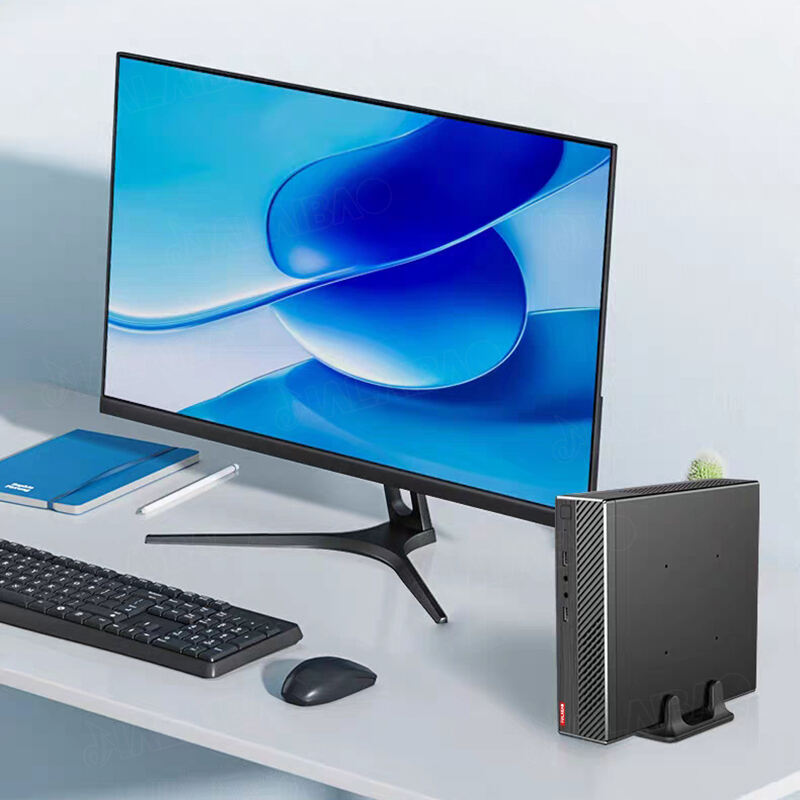Government agencies face unique challenges when selecting computing equipment for their operations. The decision to implement all-in-one PCs in government settings requires careful consideration of numerous compliance factors to ensure data security, operational efficiency, and adherence to strict regulatory requirements. Understanding these critical elements helps agencies make informed decisions that align with federal, state, and local governance standards while maintaining the highest levels of security and performance.
When evaluating compliance factors all-in-one PCs government agencies must prioritize FIPS certification. These standards, developed by the National Institute of Standards and Technology (NIST), establish specific requirements for hardware and software components. All-in-one PCs deployed in government settings should meet FIPS 140-2 or 140-3 standards for cryptographic modules, ensuring secure data encryption both at rest and in transit.
Additionally, the systems should support FIPS 201 requirements for Personal Identity Verification (PIV), enabling secure authentication and access control measures that protect sensitive government information and resources. Modern all-in-one solutions increasingly incorporate built-in security features that facilitate compliance with these essential standards.
Government agencies must verify that potential all-in-one PC solutions possess appropriate Common Criteria certification levels. This international standard ensures that technology products meet specific security requirements for government use. The certification evaluates various aspects of the system, including access control, audit capabilities, and cryptographic support.
Different government departments may require different Evaluation Assurance Levels (EAL), typically ranging from EAL 2+ to EAL 4+. When selecting all-in-one PCs, agencies should confirm that the chosen systems meet or exceed their required EAL certification level to maintain compliance with departmental security policies.
Compliance factors all-in-one PCs government organizations must address include robust data protection capabilities. Systems should feature self-encrypting drives (SEDs) that meet government standards for data protection. These drives automatically encrypt all stored information, providing an additional layer of security against unauthorized access or theft.
The implementation of hardware-based security features, such as Trusted Platform Module (TPM) 2.0, ensures secure storage of encryption keys and other sensitive security parameters. This technology helps agencies maintain compliance with data protection requirements while facilitating secure boot processes and system integrity verification.
Government agencies must ensure their all-in-one PCs support comprehensive privacy controls and access management features. This includes the ability to implement role-based access control (RBAC), multi-factor authentication, and detailed audit logging capabilities. These features help maintain compliance with privacy regulations while providing administrators with necessary oversight of system usage and potential security events.
Solutions should also support secure remote management capabilities, allowing IT teams to monitor, update, and maintain systems without compromising security. This becomes particularly important in distributed government operations where systems may be deployed across multiple locations.

When evaluating compliance factors all-in-one PCs government IT departments must consider operating system requirements. Selected systems should support government-approved operating systems and maintain compatibility with essential security updates and patches. This includes the ability to run specialized government editions of operating systems that incorporate additional security features and controls.
The hardware should also facilitate secure boot processes and support UEFI BIOS security features, ensuring system integrity from startup through operation. This helps prevent unauthorized modifications to the boot process and protects against sophisticated malware attacks.
Government agencies must verify that all-in-one PCs support their required applications and maintain proper driver certification. This includes compatibility with government-specific software solutions and security tools. Systems should also support secure driver updating processes to maintain compliance with security policies while ensuring optimal performance.
Additionally, agencies should consider the long-term availability of certified drivers and applications, as government systems often remain in service longer than commercial equivalents. This helps ensure continued compliance throughout the system's operational lifespan.
Government agencies must evaluate physical security features when selecting compliance factors all-in-one PCs government installations require. This includes considering systems with integrated cable locks, secure mounting options, and tamper-evident seals. These physical security measures help prevent unauthorized access or removal of devices while maintaining compliance with facility security requirements.
The design should also incorporate secure port management features, allowing administrators to disable or control access to USB ports and other external connections. This helps prevent data exfiltration and the introduction of unauthorized devices while maintaining operational security.
All-in-one PCs deployed in government settings must meet specific environmental standards and certifications. This includes compliance with Energy Star requirements for energy efficiency and EPEAT certification for environmental sustainability. These standards help agencies meet federal environmental regulations while optimizing operational costs.
Systems should also demonstrate compliance with electromagnetic interference standards and other environmental requirements specific to their intended deployment location. This ensures reliable operation while preventing potential interference with other critical government systems.
All-in-one PCs designed for government use incorporate various security features and certifications that help agencies meet regulatory requirements. These include FIPS certification, Common Criteria compliance, encrypted storage, and secure authentication mechanisms that protect sensitive government data and resources.
Government agencies should prioritize systems with FIPS 140-2/3 certification, Common Criteria certification (appropriate EAL level), TPM 2.0 support, and relevant industry security certifications. These certifications ensure the systems meet necessary security standards for government use.
Government agencies should expect all-in-one PCs to maintain compliance throughout their operational lifespan, typically 3-5 years. This requires selecting systems from manufacturers who commit to long-term support, regular security updates, and maintaining necessary certifications throughout the product lifecycle.
